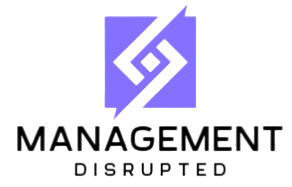Advocates Embrace Darknet Services For Secure And Censorship-Free Digital Interactions
Advocates for digital freedom and privacy are increasingly turning to darknet services as a viable solution for secure and censorship-resistant online communication. In a world where mainstream internet platforms are often subject to surveillance, data harvesting, and content moderation, the darknet offers an alternative digital space where anonymity and freedom of expression are prioritized. Unlike the conventional web, which operates through indexed search engines and is easily monitored, darknet networks rely on decentralized, encrypted protocols that shield users from tracking and surveillance. This protective infrastructure is especially valuable for activists, journalists, whistleblowers, and political dissidents operating in repressive regimes, where any form of dissent or unauthorized communication can lead to persecution or imprisonment. The appeal of darknet services lies in their ability to facilitate private, untraceable communication, file sharing, and publishing. These platforms use technologies such as onion routing and end-to-end encryption to ensure that data remains confidential and the identity of the user is kept anonymous.

In many regions, even voicing an opinion contrary to official narratives can invite severe consequences. The darknet enables individuals to bypass firewalls, censorship filters, and content restrictions, giving them a lifeline to the global information ecosystem and a platform to share their experiences without fear of retaliation. Moreover, the decentralized nature of darknet platforms challenges the monopolistic control held by major tech corporations over digital content and user data. By moving away from centralized services that require users to surrender personal information in exchange for access, darknet advocates aim to redefine the digital landscape into one that respects autonomy and consent. This shift reflects a broader movement toward reclaiming the internet as a public good rather than a commercialized surveillance tool. It is not just about hiding from scrutiny; it is about creating alternative structures where freedom, privacy, and truth can coexist without compromise.
Омг ссылка often associate the darknet with illicit activity, which overshadows its legitimate and vital uses. However, proponents argue that this perception fails to recognize the crucial role these services play in supporting oppressed voices and enabling uncensored communication. In environments where truth is criminalized and surveillance is normalized, the darknet becomes a haven for truth-tellers. It empowers users to organize, collaborate, and disseminate information safely, away from the gaze of authoritarian control or corporate oversight. As the global debate over digital rights continues to evolve, the adoption of darknet technologies by privacy advocates signals a growing resistance to centralized control and algorithmic censorship. These tools are not a rejection of the internet itself, but rather a reclamation of its original promise a space where information is free, privacy is protected, and individuals have the power to speak without fear. For those who champion open access, transparency, and digital sovereignty, the darknet represents not a retreat into the shadows, but a bold stand for an internet that serves people, not power.
